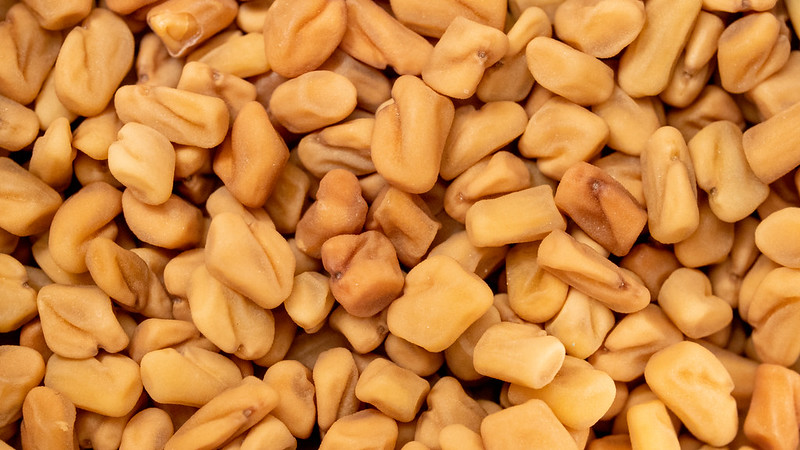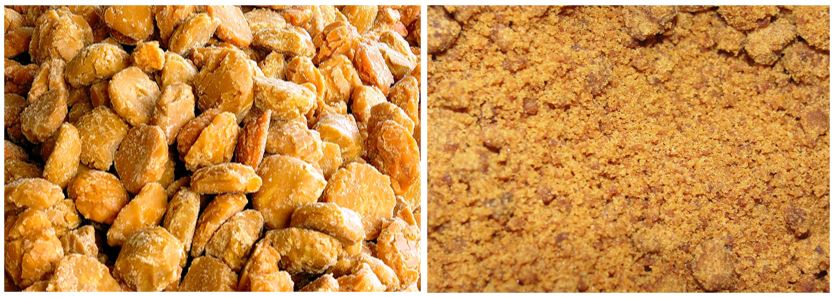
Introduction: 🌿🌾 Methi seeds, also known as fenugreek seeds or “Methi Dana” in Hindi, have long been celebrated for their incredible health benefits and weight loss properties. These small, golden seeds are packed with nutrients and bioactive compounds that can aid in weight management, boost metabolism, regulate blood sugar levels, improve digestion, and promote overall well-being. In this comprehensive blog post, we will explore the weight loss benefits of methi seeds in detail, delve into their nutrient profile, uncover the science behind their weight management properties, provide practical ways to incorporate them into your diet, and offer additional tips for optimal weight loss results. Get ready to unlock the potential of “Methi Dana” and embark on a successful weight loss journey.
Boosts Metabolism and Facilitates Fat Burning: 🌿 Methi seeds can help rev up your metabolism and facilitate fat burning. These seeds are rich in galactomannan, a type of soluble fiber that swells up in the stomach and promotes a feeling of fullness. This can help reduce appetite and calorie intake, potentially leading to weight loss. Additionally, the compounds present in methi seeds may enhance metabolic rate, resulting in increased calorie expenditure and improved fat oxidation. By incorporating methi seeds into your diet, you can potentially boost your metabolism and support your body’s fat-burning mechanisms. 🌿🔥💪
Regulates Blood Sugar Levels: 🌿 Methi Dana have been traditionally used to regulate blood sugar levels, making them beneficial for individuals aiming to manage their weight. The soluble fiber in methi seeds helps slow down the absorption of glucose in the bloodstream, preventing sudden spikes and crashes in blood sugar levels. This helps maintain stable energy levels, reduce cravings, and avoid overeating. By keeping blood sugar levels balanced, methi seeds support overall metabolic health and weight management efforts. 🌿📉🍬
Aids in Appetite Control: 🌿 Methi seeds are known for their appetite-suppressing properties. The soluble fiber in these seeds expands in the stomach, promoting a feeling of fullness and reducing the desire to eat. This can help prevent overeating and unnecessary snacking, leading to reduced calorie intake and supporting weight loss goals. Additionally, methi seeds may help regulate the production of ghrelin, a hormone responsible for stimulating hunger. By incorporating methi seeds into your diet, you can take control of your appetite and make mindful choices about your food consumption. 🌿🍽️😌
Enhances Digestive Health and Alleviates Constipation: 🌿 Methi seeds have long been valued for their ability to promote digestive health. They are a rich source of dietary fiber, which helps regulate bowel movements, prevent constipation, and support a healthy digestive system. The fiber in methi seeds adds bulk to the stool, making it easier to pass through the intestines. This helps alleviate constipation and promotes regularity. By supporting your digestive health with methi seeds, you can ensure efficient nutrient absorption, reduce bloating, and maintain a healthy gut environment. 🌿🌱💩
Practical Ways to Incorporate Methi Seeds into Your Diet: 🌿 Here are some practical and delicious ways to incorporate methi seeds into your daily diet:
- Methi Water Infusion: Soak a teaspoon of methi seeds in a glass of water overnight. Drink the infused water in the morning on an empty stomach. This simple and effective method can help boost metabolism, aid digestion, and promote weight loss.
- Methi Sprouts: Sprout methi seeds by soaking them in water for a few hours, then rinsing and draining them. Use these sprouts in salads, sandwiches, or stir-fries for a nutritious and crunchy addition.
- Methi Powder: Grind methi dana into a fine powder and use it as a spice in various dishes, such as curries, soups, and lentil preparations. The powder adds a distinct flavor and nutritional punch to your meals.
- Methi Tea: Brew methi seeds in hot water and let them steep for a few minutes. Strain and enjoy a warm cup of methi tea, which can help boost metabolism, aid digestion, and support weight loss efforts.
- Methi Leaves in Cooking: Fresh methi leaves can be used in cooking to add a unique flavor and nutritional benefits. Add them to curries, stir-fries, or sauté them with other vegetables for a healthy and flavorful dish.
Additional Tips for Optimal Weight Loss Results: 🌿 To maximize the weight loss benefits of methi seeds, consider the following tips:
- Consistency is Key: Incorporate methi dana into your daily routine consistently to experience their long-term benefits. Regular consumption is key to reaping the rewards.
- Balanced and Nutrient-Dense Diet: Methi seeds should be part of a well-rounded, balanced diet that includes a variety of fruits, vegetables, lean proteins, and whole grains. Focus on nutrient-dense foods that support overall health and weight management.
- Physical Activity: Combine your methi seed consumption with regular physical activity to enhance weight loss results. Engage in activities you enjoy, such as brisk walking, jogging, cycling, or strength training.
- Stay Hydrated: Drink plenty of water throughout the day to support digestion, hydration, and overall well-being. Hydration plays a crucial role in weight management.
Conclusion: 🌿🌾 Methi seeds, or “Methi Dana,” are a powerhouse of nutrients and weight loss benefits. From boosting metabolism and regulating blood sugar levels to aiding appetite control and enhancing digestive health, methi seeds offer a holistic approach to weight management. By incorporating methi seeds into your diet through various methods and following a healthy lifestyle, you can harness the power of “Methi Dana” and achieve your weight loss goals. Embrace the potential of these tiny seeds and embark on a journey towards a healthier, fitter you. 🌿🌱💖












